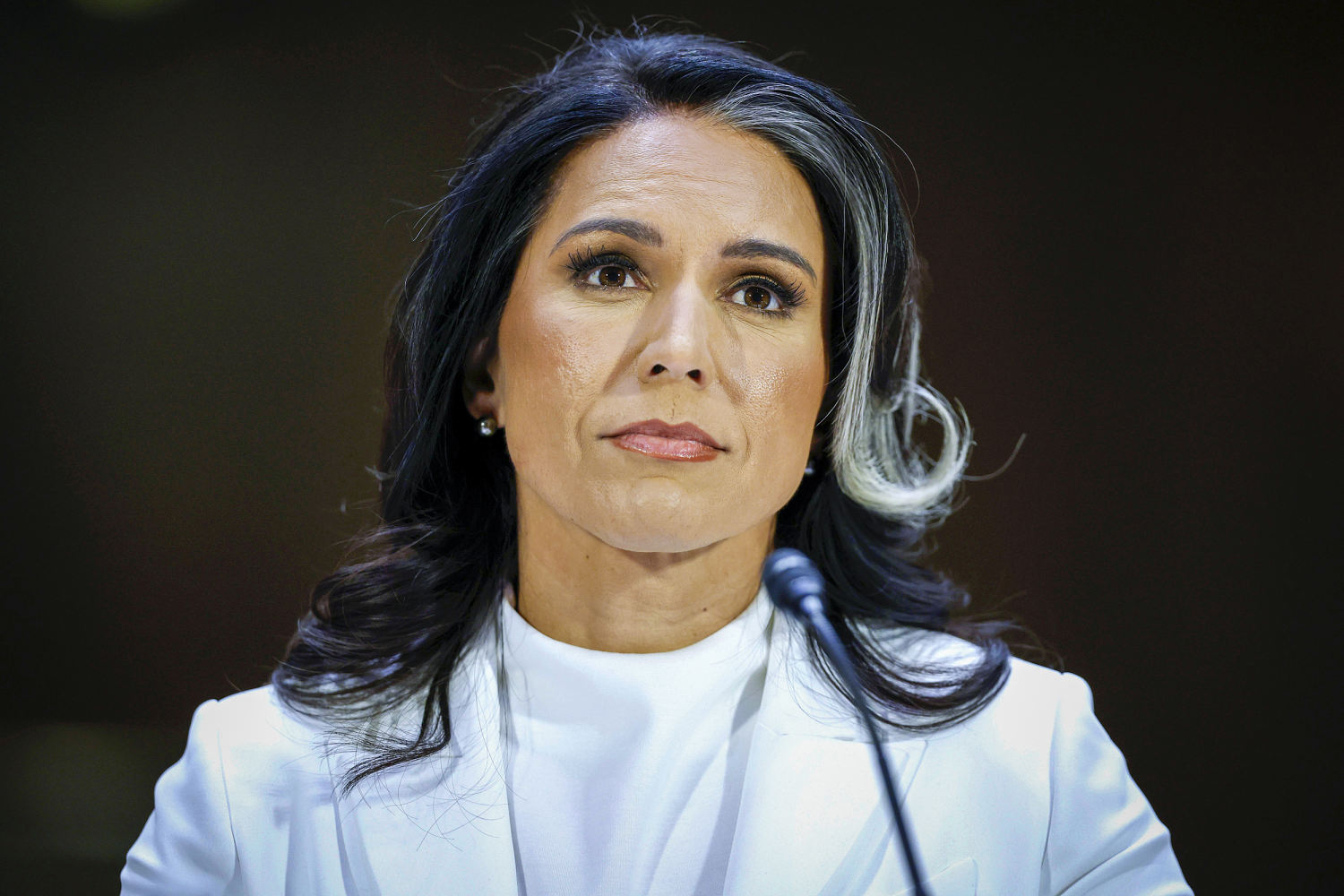
WASHINGTON — The GOP-controlled Senate on Wednesday voted to confirm Tulsi Gabbard to be President Donald Trump’s director of national intelligence, putting the former congresswoman in charge of the sprawling U.S. intelligence community.
The 52-48 vote was largely along party lines, with nearly all Republicans present voting in favor of Gabbard. Sen. Mitch McConnell, R-Ky., the former longtime GOP leader who has clashed with Trump, was the only Republican who joined all Democrats in voting against her.
Gabbard’s confirmation is a win for Trump and represents yet another example of his dominance over the GOP, where few have shown a willingness to step out of line.
After Trump announced Gabbard as his DNI pick in November, Democrats — and a handful of Republicans — voiced serious concerns about her 2017 secret meeting with then-President Bashar Assad of Syria; her sympathetic comments about Russia; her past efforts to repeal a powerful government surveillance tool, known as Foreign Intelligence Surveillance Act’s Section 702; and her previous support for Edward Snowden, a former government contractor who leaked classified information to the press about those spying programs.
Before her nomination, Gabbard had argued that Snowden should be pardoned. But appearing before the Senate Intelligence Committee at a confirmation hearing last month, Gabbard reversed course, saying she would not push for Snowden to be pardoned or receive clemency, even as she refused to call the former National Security Agency contractor a “traitor” when pressed by GOP senators.
In addition, Gabbard backed off her sharp criticism of Section 702 during the hearing, calling it a “crucial” tool after Congress passed new protections last year.
In the end, McConnell was the sole Republican to buck Trump and vote no on Gabbard. In a scathing, lengthy statement after the vote, McConnell said it was apparent Gabbard was not prepared for the job and demonstrated a “history of alarming lapses in judgment.”
“The Senate’s power of advice and consent is not an option; it is an obligation, and one we cannot pretend to misunderstand. When a nominee’s record proves them unworthy of the highest public trust, and when their command of relevant policy falls short of the requirements of their office, the Senate should withhold its consent,” McConnell said, specifically sounding the alarm about Gabbard’s remarks about Snowden, Chinese aggression and Russia’s invasion of Ukraine.
“In my assessment, Tulsi Gabbard failed to demonstrate that she is prepared to assume this tremendous national trust.”
Moderate Sen. Susan Collins, R-Maine, a member of the Intelligence Committee and a key GOP swing vote, was one of the Republicans who had raised concerns about Gabbard but threw her support behind her just days after her confirmation hearing. Collins helped write the 2004 legislation that established the DNI position.
“The Office of the Director of National Intelligence … has become far larger than it was designed to be, and Ms. Gabbard shares my vision of returning the agency to its intended size,” Collins said in a statement this month. “In response to my questions during our discussion in my office and at the open hearing, as well as through her explanation at the closed hearing before the Senate Intelligence Committee, Ms. Gabbard addressed my concerns regarding her views on Edward Snowden.”
Democrats were sharply critical of Gabbard, suggesting Republicans were more concerned about not angering Trump than national security.
“Instead of speaking fact and truth, Ms. Gabbard repeatedly speaks the language of falsities and conspiracy theories,” Senate Minority Leader Chuck Schumer, D-N.Y., said on the floor Tuesday. “The director of national intelligence must be strong against America’s adversaries. But Ms. Gabbard has spent her entire career sympathizing with the likes of Vladimir Putin and Bashar Al Assad.”
The director of national intelligence oversees the 18 agencies that make up the U.S. intelligence community, including the Central Intelligence Agency and National Security Agency. The DNI also advises the president on intelligence matters.
Gabbard, 43, an Iraq war veteran, has served for more than two decades in the Army Reserve. She had been a longtime Hawaii Democrat, serving in the state House and on the Honolulu City Council. She went on to represent Hawaii in the House of Representatives from 2013 to 2021. After she unsuccessfully ran for the Democratic presidential nomination in 2020, Gabbard endorsed Joe Biden over Trump.
But she soured on the Biden administration and left the Democratic Party in 2022. Last October, Gabbard announced she was joining the Republican Party and endorsed Trump, appearing with him on the campaign trail in the run-up to the 2024 election.
Senate votes to advance RFK Jr.’s health secretary bid
The Senate also voted along party lines Wednesday to advance the nomination of Robert F. Kennedy Jr., Trump’s unorthodox pick for health and human services secretary. The 53-47 vote puts Kennedy on a path to be confirmed by Thursday morning.
Some Republicans have expressed skepticism about Kennedy given his past opposition to vaccines and support for abortion. But during a shaky performance at his confirmation hearing last month, Kennedy said he now believes “vaccines have a critical role in health care.” Asked about his position on abortion, he replied: “I agree with President Trump that every abortion is a tragedy,” adding that abortion laws should be left to the states.
Last week, Sen. Bill Cassidy, R-La., a physician and chairman of the Senate Health, Education, Labor and Pensions Committee who was seen a crucial swing vote, announced his support for RFK Jr. after saying he extracted a half dozen key concessions from the nominee.
In Cassidy’s words, RFK and the Trump administration committed to “protect the public health benefit of vaccination.” RFK also committed to having a “close collaborative working relationship” with Cassidy, the senator said, where they will speak multiple times a month. RFK will also appear before the HELP committee on a quarterly basis if needed, Cassidy said.








